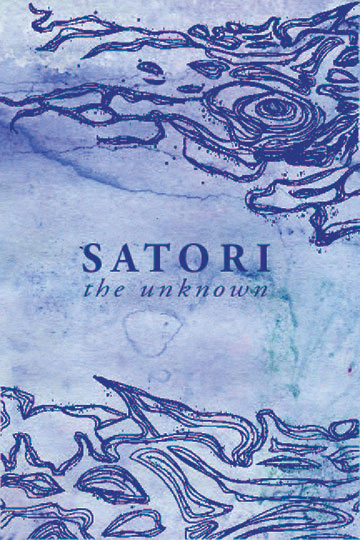As humans, we often fear the unknown. The more familiar we become with things, the less scary we find them. This year’s literary magazine, Satori, is titled “The Unknown” and includes works of art that deal with different ideas of our deepest insecurities and fears.
What is Satori?
Satori is WSU’s yearly literary magazine composed of poems, short stories, photography, paintings, sculptures, digital art and more. It is produced through a course offered by the English department, though it is open to students of any department.
I interviewed two students from the class: Sajda Omar, a dual degree English major, and Elyse Hoffmann, an Advertising major and Art minor. Sajda acted as editor in chief while Elyse was in charge of graphic design and ultimately the final layout of the book.
These two students, plus three others, worked incredibly hard on this compilation. Elyse went so far as to finalize the whole book and submit it to be printed only hours after going through emergency surgery!
The Unknown
The theme for Satori this year is “The Unknown.” When interviewing Sajda and Elyse, they said the theme was chosen for a lot of reasons.
The first reason being that they wanted a theme that mirrored events on campus in some way. Since Frankenstein’s 200th anniversary is this summer, there have been many Frankenstein related events on campus from movie screening parties to writing competitions. They thought it would be fitting to give Satori a theme that related to these events and the story Frankenstein.
Second, Sajda and Elyse wanted to choose a theme that appealed to a wider demographic than just liberal arts students. Because Satori is not as widely known outside of the College of Liberal Arts, they sought to attract attention through an intriguing and ambiguous theme that could easily cross boundaries and bring people together.
Spreading the Word About Satori
Sajda and Elyse want to increase the awareness of Satori across campus. Many of the works in this year’s Satori focus on family life, environmental, mental health and racial issues. But, no single piece can be so simply defined.
Sajda and Elyse were thrilled to see a wider range in the demographics of people who submitted this year, and they want to make sure all will feel welcome and able to contribute next year as well.
How to Get a Copy
You can find the literary magazine just inside the library sometime during the week of April 23rd.
Keep an eye out next spring for a chance to submit your own pieces to Satori 2019!
